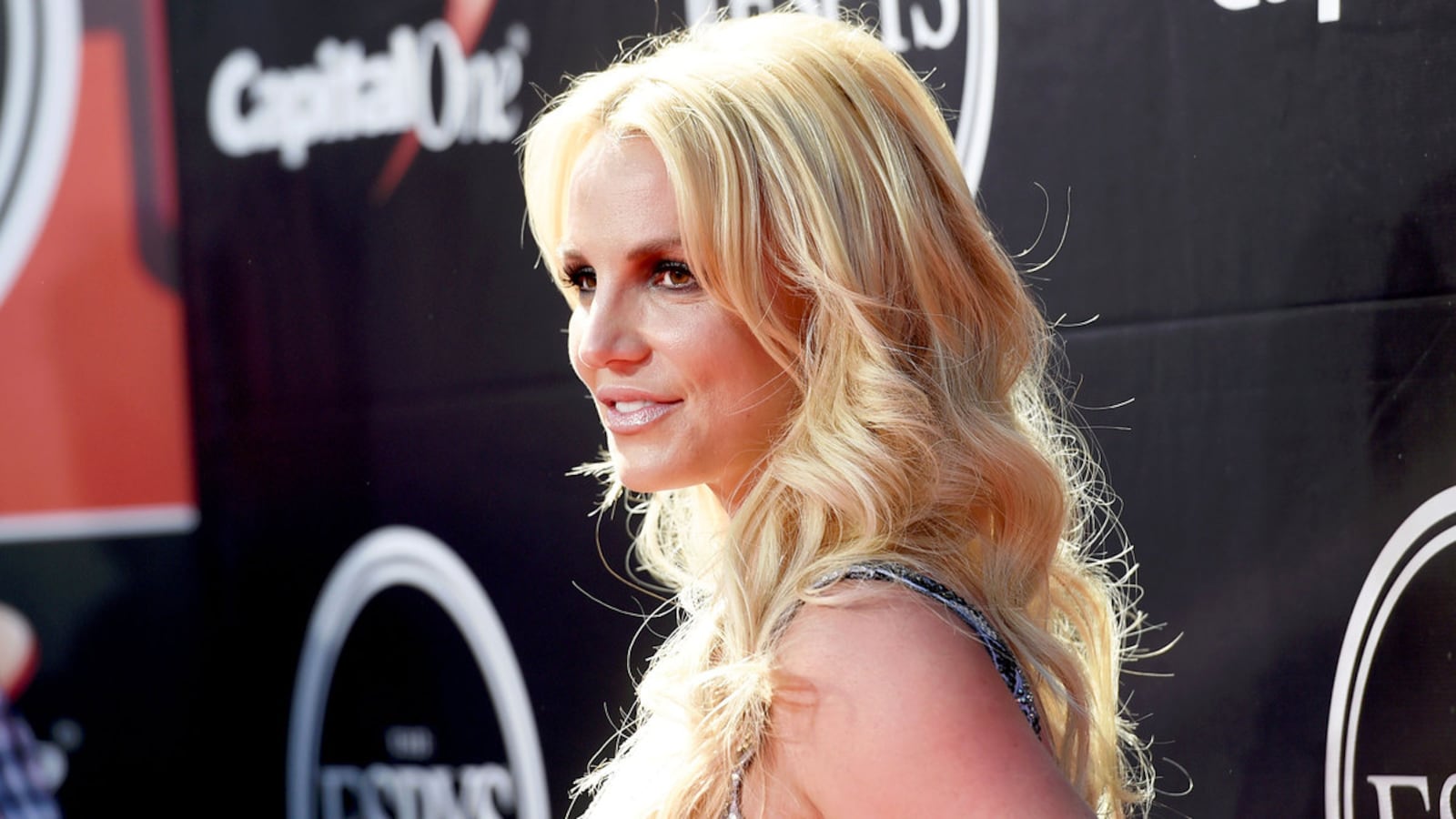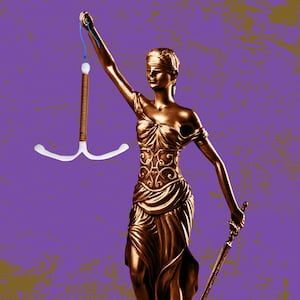This is a preview of our pop culture newsletter The Daily Beast’s Obsessed, written by senior entertainment reporter Kevin Fallon. To receive the full newsletter in your inbox each week, sign up for it here.
Our Objectification of Britney Spears
I am, as always, in awe of Britney Spears.
I’m not sure what I expected when it was announced that the pop star was going to address the court about her controversial conservatorship on Wednesday.
Maybe it’s these last years’ undercurrent of cynicism braided with skepticism that made me assume the news from the hearing couldn’t be that shocking.
Maybe it’s the way we’ve been conditioned to, against our better judgment, assume that legal arrangements like Spears’ conservatorship are really, truly in a person’s best interest. It’s a blind trust, the “we don’t know what we don’t know” of it all, even if we suspect something nefarious—and even if we know well enough how easy it is for these things to be abused.
It could be because we’re in fact among the kind of people we imagine ourselves to be better than: those who don’t believe potential victims because they seem “crazy.”
The #FreeBritney movement, for so long, seemed like unhinged extremism from unstable fans. Fandom, especially in 2021, seems to foster unjustifiable behavior, the kind that’s easy to write off because it can be so unreasonable. It was too easy to not believe them. And for Spears, a person whose mental state has been the subject of two decades of vicious public discourse, maybe it was also easy to not believe her, too.
She said as much in her testimony. She previously told the public and her fans that she was happy because she was “in denial” and “in shock.” She hoped that she could “fake it ’til you make it.” She never came forward with details of her situation before, she said, “because I honestly don’t think anyone would believe me.”
The tragic thing is that she’s right. Up until this moment, I’m not sure she would have been believed.
It took hard work for those fans (whom many people, myself included, were so tempted to dismiss) to take the #FreeBritney movement to mainstream credibility. It took the documentaries to legitimize the concerns, and investigative reporting to surface Spears’ years-long effort to end the conservatorship.
I consider myself a massive Britney Spears fan and I don’t think I would have believed her. I was so certain that this testimony wouldn’t be a big deal, that all of these things that had been whispered weren’t true. Why is that? Why was it so easy to ignore the truth that was in plain sight?
As long as there were concerts to go to and an Instagram account to be both mystified and delighted by, the rest could be locked away. We didn’t think about or acknowledge the possibly dark secrets. Yeah, there was all this conservatorship drama that people brought up sometimes, but it was background noise. You’re at a concert and she’s performing “Work Bitch.” Who wants to think about all that?
Spears spoke for 23 minutes at the hearing, largely uninterrupted, and almost each minute brought another shocking revelation of how traumatic her abuse under the conservatorship has been.
She was forced to attend rehab when she didn’t want or need to, and forced to take lithium against her will. She can’t get married and the conservators won’t let her remove her IUD so she can have another baby. She compared how she was treated by her father to sex trafficking. She worked seven days a week under threat that she couldn’t see her kids, spend time with her boyfriend, or go on vacation otherwise.
One part of her statement that I’ve thought a lot about is when she says she was forced to go on her 2018 tour. Her managers threatened to sue her if she didn’t and, under the conservatorship, she couldn’t hire her own attorney to fight them. With no other recourse, she signed the contract for the tour. “It was very threatening and scary,” she told the court. “Out of fear, I went ahead and did the tour.”
I saw that 2018 tour. I attended one of her dates at Atlantic City’s Borgata Casino. I remember that rumors about her mental health and reports that the conservatorship was stripping her of control of her career were on the back of everyone’s minds. It was certainly the first thing friends wanted to know about when I got back: How was she? Did she seem lucid? The cruel whispers were that she was some drugged robot going through the motions. Did she seem “all there”?
There were moments that raised an eyebrow. The only time she addressed the crowd was to say, “What’s up, Atlantic City? This place reminds me of Louisiana. Are you ready to break the ice?” It made no sense. Everyone was confused. And as such, we were living for it. In some ways, Spears seeming a little off and strange became part of her brand, something to be celebrated. I believe at the time, I called it “iconic.”
Spears gave a phenomenal performance. Her dancing was fantastic. She looked great. At the time, I remember it all seemed robotic, but not in a way where Spears didn’t seem alive. It just was orchestrated within an inch of its life, where every tilt of the head and smile seemed like it was running a carefully executed program.
The thing that struck me most, though, was that Spears did seem to be enjoying herself. That Atlantic City show is the one where a fan screamed “WHO IS IT!?” when the intro for “Gimme More” played, right before Spears recited her famous “It’s Britney, bitch” line. She cracked a huge smile and laughed, nodding and winking in his direction. It was a blast, mostly because it seemed to tickle her so much.
The aftermath of her testimony this week has obviously triggered a lot of self-reflection and reconsideration. That started after the airing of Framing Britney Spears earlier this year. It finally forced the media and the public that enabled it to confront the misogyny of how she was treated and exploited. The rumination has centered around the systems and the institutions that perpetuated this treatment but, at least as I’ve found—and I’d venture many have as well—it’s also very personal.

The objectification of Britney Spears was in every headline, tabloid report, paparazzi chase, late-night comedy joke, and ensuing media circus that financially capitalized on her struggles. But it was also in the way we, even her biggest fans, consumed her music, performances, and celebrity.
We went to concerts making jokes about whether or not she was “with it.” We watched her performances on TV and graded them on a “good for you, Brit!” curve, knowing she was weathering dark personal issues each time she took the stage. When she was younger, her sexuality was exploited. Now it was her trauma.
News reports of her testimony this week were paired with photos of her dancing in shackles. Lyrics from songs like “I’m a Slave 4 U,” “I’m Not a Girl, Not Yet a Woman,” and “Stronger” were used as puns in headlines. Even in the supportive celebration of her bravery, Spears and her career were being objectified again.
That’s one of the many things, I think, that makes what she did this week so powerful. It’s a challenge to end the objectification. The question is whether we’re willing to confront and consider the systems—the ones we uphold ourselves—and do it.



